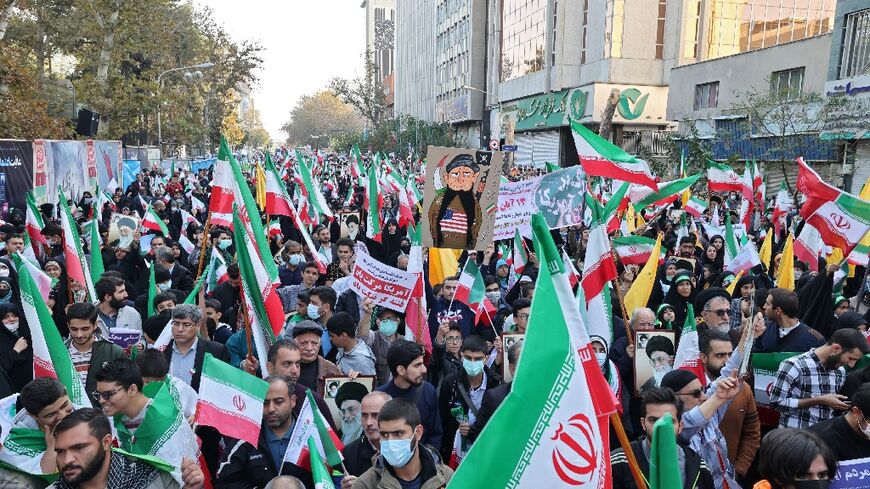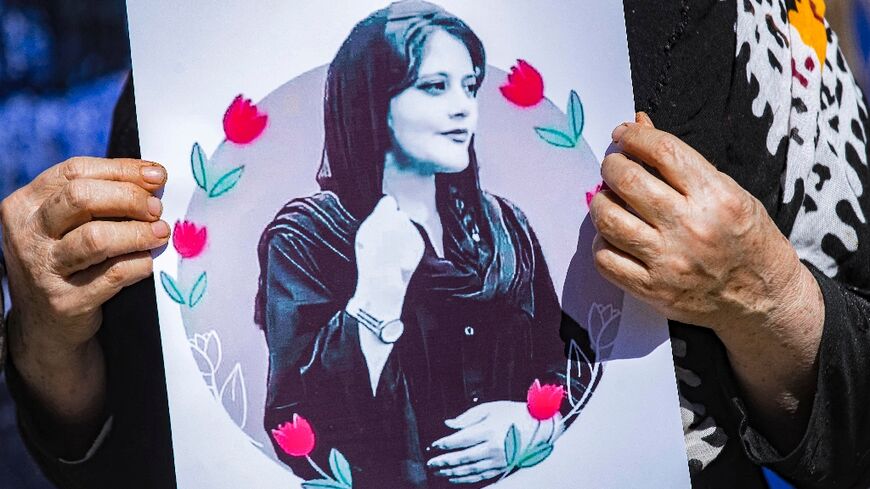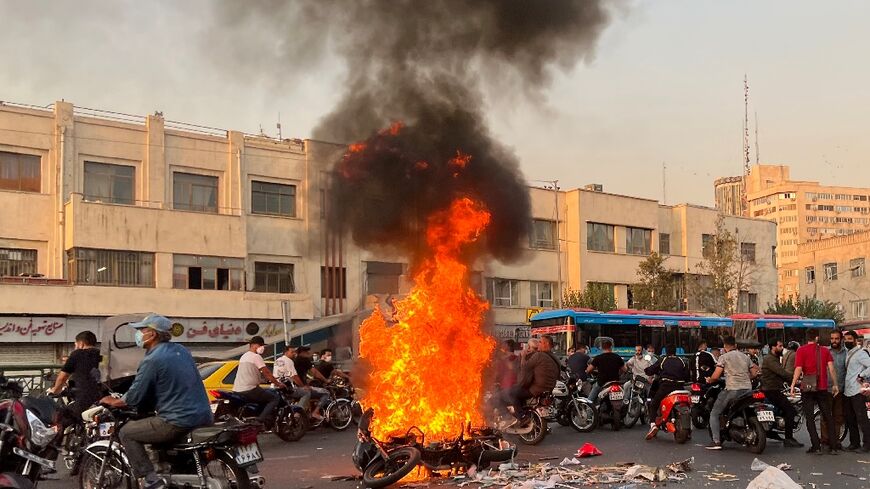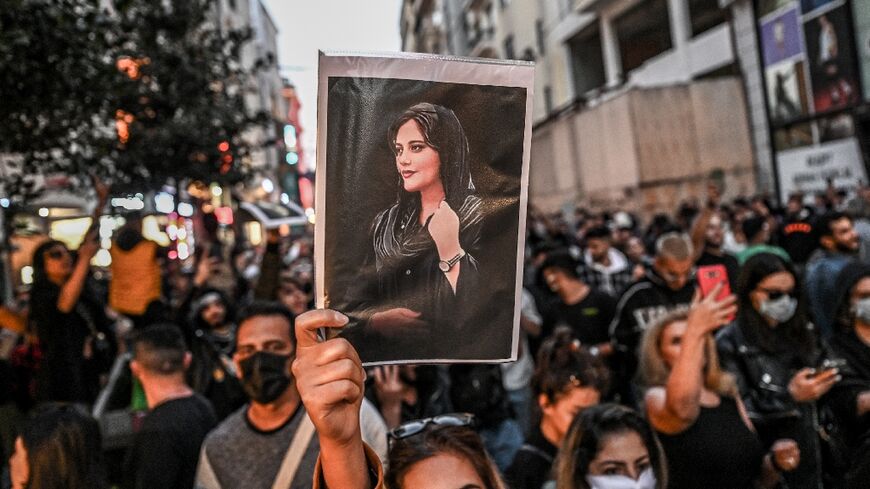Shirin Alizadeh: Iranian woman killed filming crackdown
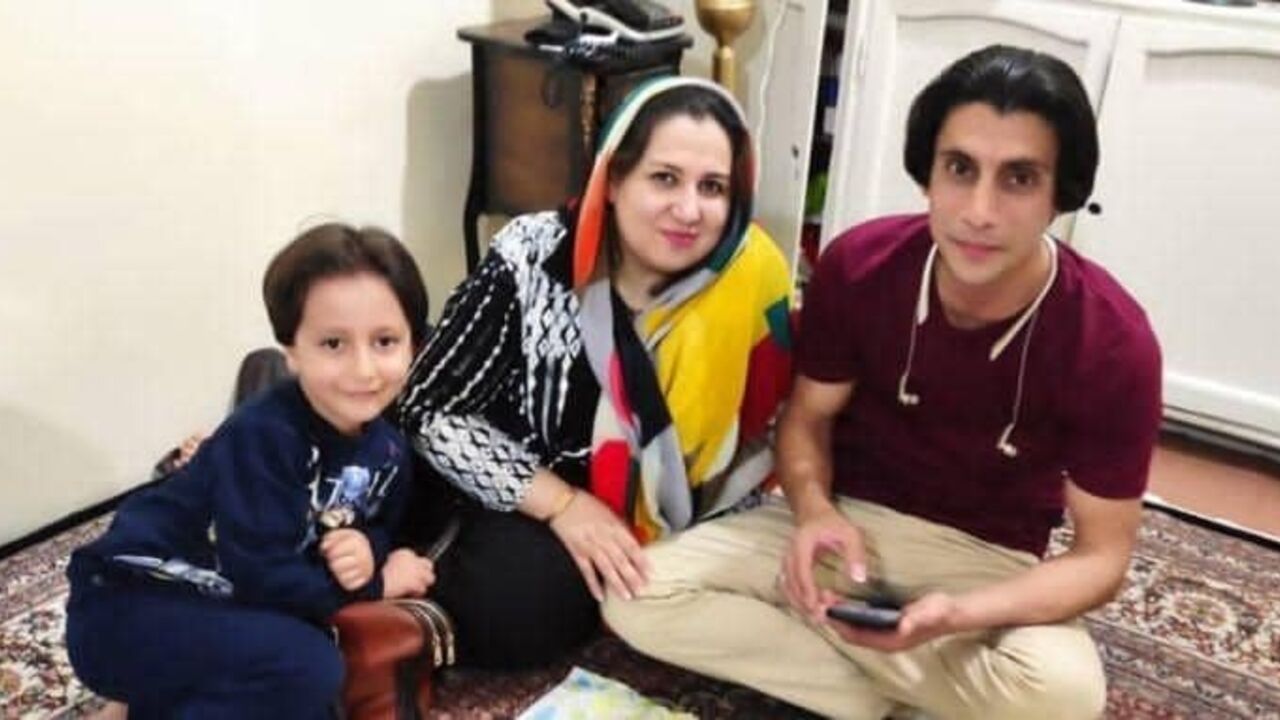
Driving back home from a holiday, Shirin Alizadeh found herself in the middle of a violent crackdown on a protest in northeastern Iran.
"I hope that they don't shoot towards the car," she says as shots resound around the vehicle in the town of Salmanshahr in Mazandaran province on the Caspian Sea, while she films the events on her mobile phone.
Alizadeh, her husband who was driving the car, and two other travel companions saw people being shot dead in the street as they sought to drive back to their home city of Isfahan through the throng of protesters on September 21.
"Film it!" she urges one of the travel companions on the rear seat as a woman appears to lie killed on the roadside.
A ripping sound is then heard, the frame spins around and the footage abruptly stops.
According to Amnesty International, one of the bullets entered the rear window of the car and hit 36-year-old Shirin in the neck and in the head. She died in hospital.
Amnesty has posted the video on its Twitter feed for Iran, while it has already been verified by AFP.
The traditional mourning ceremony that takes place 40-days after the death of a person in Iran should take place on Friday in Isfahan.
But Amnesty says the authorities are now subjecting her family to "harassment and intimidation" in a bid to stop the ceremony from taking place.
The authorities fear it could become a rallying point for the protests that have shaken Iran for the past six weeks since the death of Mahsa Amini who was arrested by the Tehran morality police.
- 'Documenting the violence' -
"The last words you hear her saying are 'film it!'. She (Shirin Alizadeh) cared about documenting the violence," Amnesty's Iran researcher Raha Bahreini told AFP.
"The burial certificate confirmed that she was shot by a bullet," she added.
Bahreini said that night in the city, forces of the Basij paramilitary force were shooting "randomly" from a building at the side of the road on what was the deadliest day so far in the six-week protest wave, except for the bloodletting on September 30 in the southeastern city of Zahedan.
Her husband, who was driving the car, was overcome by trauma that night and has been suffering seizure since. Their seven-year-old son, who was not with them, is traumatised and showing signs of "severe depression", said Bahreini.
She said pressure on the family had begun even in the immediate aftermath of the killing.
"To return the body, the authorities asked the family to sign an undertaking not to speak to the media," said Bahreini.
In the run-up to the 40-day ceremony, the husband and the father have been targeted by threatening telephone calls from the authorities demanding the event be cancelled.
Such events have over the last days become flashpoints of new protests, including the 40-day ceremony for Amini herself.
"The family are very concerned that as they are not cooperating they could fire on the mourners," Bahreini said.


